The demand for virtual assistants (VAs) is growing rapidly—and for good reason. For businesses, hiring a VA offers a cost-effective way to get reliable remote support. For professionals, it’s a flexible and rewarding career path with endless opportunities.
But what does it take to achieve success as a virtual assistant? In this blog, you’ll learn the essential skills every beginner VA must have to be effective in this role. Whether you’re new to the VA field or hiring one for the first time, understanding these skills is the best place to start. Let’s dive in.
Hire a Beginner VA—Enjoy the Benefits of Fresh Talent!
While experience is valuable, it may be overrated. Some beginner VAs are often discouraged from going after VA roles because of their lack of experience. At the same time, some employers prefer to hire VAs with considerable experience. However, hiring a beginner VA can be a strategic and cost-effective choice. Here’s why:
- Competitive Rates – Beginner VAs typically charge lower rates than experienced professionals, making them a great option for startups or small businesses needing budget-friendly support. A beginner VA can offer lower rates to clients that they can renegotiate once they’ve proven their worth.
- Eagerness to Learn and Adapt – New VAs are often highly motivated to prove themselves. They’re willing to learn new tools, adapt to business processes, and enthusiastically take on work challenges.
- Ease of Training – Beginner VAs are easier to train and mold into the roles set out for them. They have little to no prior habits from previous roles, allowing them to align faster with a business’s unique way of operating.
- Fresh Perspective and Innovation – A business can benefit a lot from a beginner VA’s inexperienced perspective. A fresh set of eyes often helps infuse new ideas, creative problem-solving strategies, and innovative energy into a business.
- Long-Term Potential – A beginner VA is a valuable investment because they grow together with the business. As they gain experience, they increase their value while having commitment and loyalty to the business that gave them the chance to start.
To achieve these benefits, however, beginner VAs must have strong foundational skills and a proactive mindset so that they can quickly become an indispensable asset to any business.
Skill 1. Strong Communication
The foundation of any productive relationship is strong communication. Since most VA interactions happen remotely, clear and professional communication is non-negotiable. A well-worded email can prevent misunderstandings, a timely response can keep a project moving, and strong listening skills can make collaboration effortless.
Beginner VAs must train themselves to confidently handle everything from managing inboxes to coordinating with teams. Mastering tools like Slack, Microsoft Teams, or Zoom can help streamline interactions. For businesses looking to hire, evaluating a VA’s communication skills early on, through test projects or interviews, can ensure a smooth working relationship from the start.
Skill 2. Time Management & Organization
To be able to juggle tasks with ease is an essential survival skill for a beginner virtual assistant. VAs are expected to handle multiple responsibilities, ranging from scheduling meetings to handling data entry, customer inquiries, or project management. Keeping everything organized is what separates an efficient assistant from an overwhelmed one.
Even without VA experience, anyone can thrive in this role if they know how to prioritize, meet deadlines, and stay on top of multiple tasks without missing details. Productivity tools like Trello, Asana, and Google Calendar can help with workflow management.
Businesses must look for VA beginners who demonstrate reliability and structured thinking. They can do this by observing how a VA candidate approaches problems, tackles organizational tasks, and initiates follow-throughs.
Skill 3. Technological Savviness
Tech-savviness helps beginner VAs navigate digital workspaces better. This does not mean having IT expertise, although a background in this field is a plus, but having a certain level of tech confidence. Whether handling spreadsheets, managing a CRM, or updating content on a website, knowing how to navigate digital tools is an essential part of the job.
Before entering the remote VA field, beginners can prepare by brushing up on platforms like Google Workspace and Microsoft Office. For specialized VA tasks like accounting or sales management, learning to use software for basic bookkeeping or customer relationship management (CRM) can provide a competitive edge. Before hiring a beginner VA, businesses should determine whether they need a VA with prior experience in specific tools or if they’re willing to provide training for the right person.
Skill 4. Attention to Detail
A minor detail can be the difference between good and great. By being detail-oriented, a beginner VA can easily make up for their lack of experience. The most valuable VAs work behind the scenes—spotting errors before they become problems, double-checking important details, and ensuring that nothing slips through the cracks. Thus, VAs maintain accuracy whether they are scheduling appointments, proofreading content, or managing data.
Beginner VAs can develop their attention to detail by making it a habit to review their work carefully, and using tools like Grammarly or project checklists can enhance reliability. Businesses hiring a VA must test their applicants with test tasks that can assess a VA’s attention to detail.
Skill 5. Proactive Mindset & Professionalism
More than technical skills, the key to a long-term fit is having the right mindset and attitude. Beginner VAs must bring initiative to the table and be adaptable. They become valuable and indispensable when they can anticipate their clients’ needs, tackle problems independently, and handle challenges with professionalism.
New VAs can stand out by taking ownership of their tasks and looking for ways to add value beyond what is assigned. When hiring a beginner VA, businesses should assess a candidate’s professional judgment and ability to ask the right questions.
Assessing a Beginner Virtual Assistant Skills
Hiring a beginner VA may seem like a gamble, but not if you assess their skills thoroughly during the hiring process. Below are our pro tips when testing a VA’s potential:
- Assign a small pre-interview task to test their ability to follow instructions and meet a deadline. This task can be anything similar to their future task when hired.
- Ask a prioritization question to test their time management skills. Give them a scenario with multiple tasks that they must prioritize in a structured and logical way.
- Give a mini-organization challenge to test their ability to organize effectively. Provide a messy task list or file folder and ask they’d sort and structure these.
- Observe their follow-up, a small but telling sign of professionalism and attention to detail. Note how they ask questions about the role or business, or whether they send a thank-you email or message after the interview.
Hire Beginner VAs with Remote Raven
A successful hire—whether you’re a beginner virtual assistant or an employer—comes down to the right skills, organization, and mindset. If you’re starting your VA career, developing your skills, choosing the right clients, and maintaining professionalism will set you up for success. If you’re a business looking to hire, assessing a VA’s skills and aligning them with your goals is key to building a productive partnership.
At Remote Raven, we support both beginner VAs and businesses. As specialists in sourcing highly skilled VAs from the Philippines, we offer a large network of beginner VAs with strong foundational skills and a commitment to excellence. We provide training to help beginners succeed and work closely with businesses to ensure they get the dedicated support they need.
Starting your VA career? Looking to hire the best beginner VA? Either way, connect with Remote Raven today!





